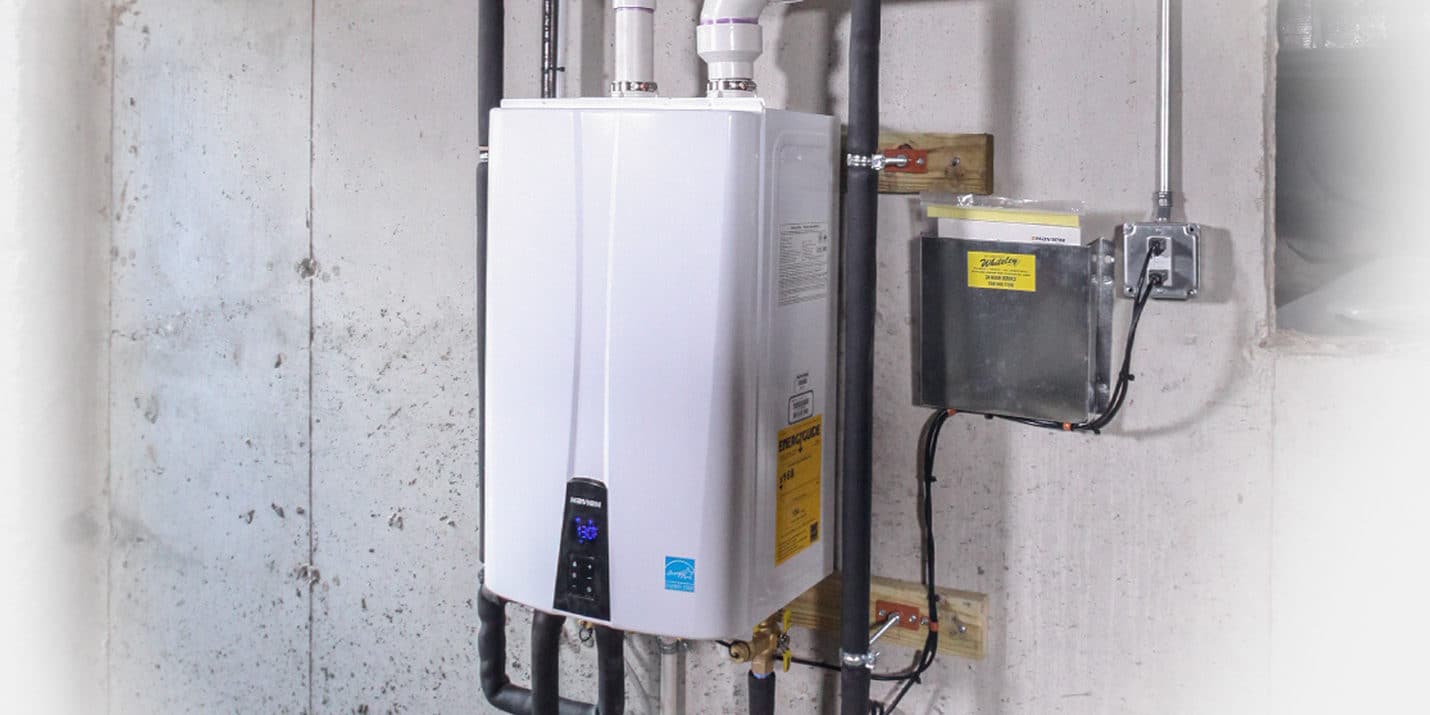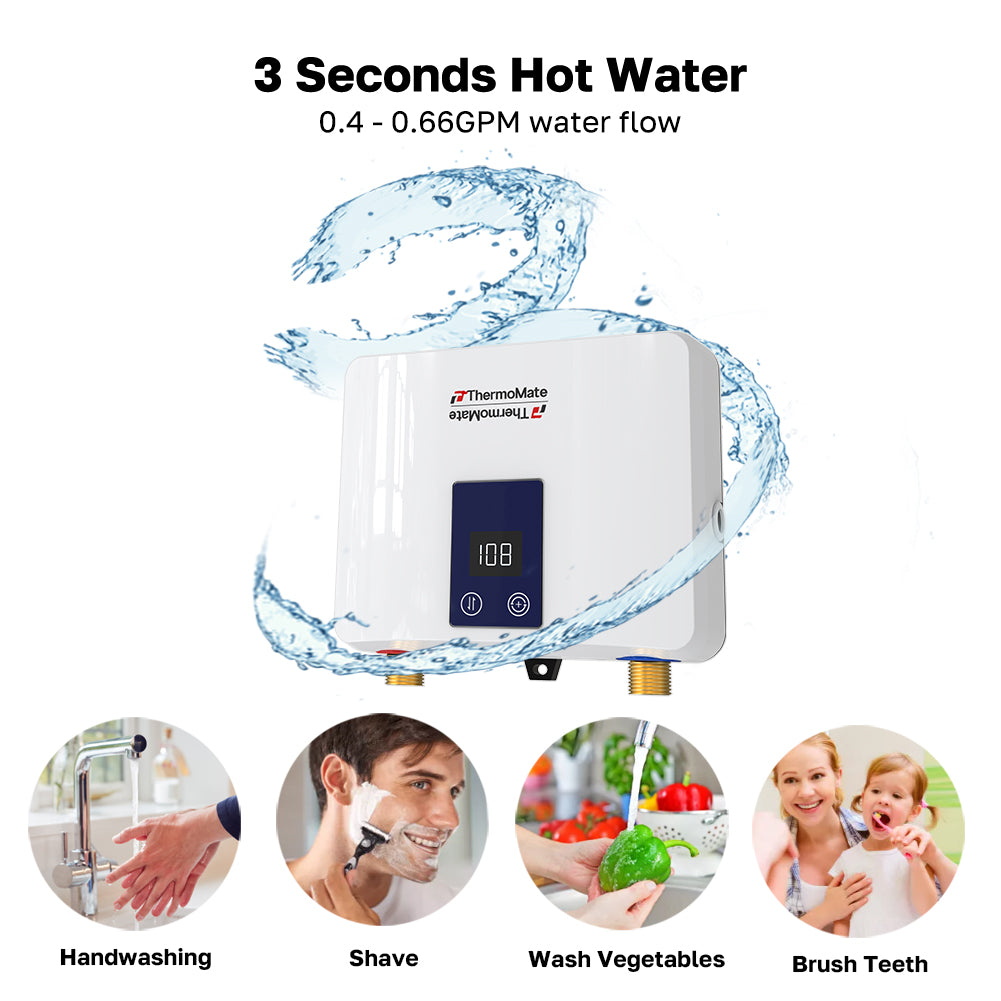Are you considering a gas tankless water heater for your home but curious about its energy consumption? You’re not alone.
Many homeowners want to know how many watts these efficient systems use before making a decision. Understanding the energy usage can help you make an informed choice, optimize your home’s efficiency, and potentially save on utility bills. We’ll dive into the specifics of how gas tankless water heaters operate, revealing the truth behind their energy consumption.
By the end, you’ll have a clear picture of what to expect and how it impacts your household. Keep reading to discover how you can harness the benefits of a gas tankless water heater without compromising on energy efficiency.
Page Contents
Energy Consumption Basics
Gas tankless water heaters use less electricity than electric ones. They rely on natural gas or propane. This makes them efficient. Most gas models use a small amount of electricity. This powers the ignition system. It also runs the fan and controls. Generally, a gas tankless water heater uses around 100 to 200 wattsof electricity. This is much lower than electric models. They need thousands of watts. Gas models heat water on demand. No need to store hot water. This saves energy. It also reduces costs. People enjoy hot water without high bills.
Types Of Gas Tankless Water Heaters
Gas tankless water heaters come in different types. Natural gas and propane are common. Natural gas heaters use less energy. Propane heaters might cost more in some places. But they are still popular. Each type has its own benefits. Natural gas is often cheaper. Propane is good for places without gas lines. Both types heat water on demand. This means no waiting for hot water. They save energy by not storing hot water. Both types are a good choice for homes. Each type has its own pros and cons. Choose based on your home’s needs and location.
Factors Affecting Wattage
The flow rate tells how much water moves through the heater. More water means more watts needed. Low flow needs less watts. High flow needs more watts. This is important for families. Big families often need high flow. Small families might need less flow. Watch the flow rate when choosing a heater.
The temperature rise is the difference between cold water and hot water. More rise means more watts. Less rise means fewer watts. Cold places need more watts. Warm places need fewer watts. This helps save energy. Consider the weather where you live. It affects how many watts you need.
Efficiency shows how well the heater uses energy. High efficiency means fewer watts. Low efficiency means more watts. Efficient heaters save money. They use less energy. They heat water quickly. Look for energy star labels. They show good efficiency. It’s smart to choose an efficient heater.
Comparing Gas And Electric Models
Gas tankless water heaters use less electricity. They rely on gas. Electric models need more watts. They heat water with electricity. Gas models may use around 200 to 300 watts. Electric ones can use up to 30,000 watts. This is a big difference. It affects how much energy you use.
Using gas models can save money. Electricity can be expensive. Gas is often cheaper than electricity. Over time, savings add up. Consider installation costs too. Gas units might cost more upfront. But in the long run, they can be cheaper. Electric units can have higher monthly bills. Think about your budget.
Calculating Energy Use
To find out how much energy a gas tankless water heater uses, you can use a simple formula. Multiply the number of gallons per minute (GPM)by the energy factor. Then, multiply this by the number of hoursthe heater runs. This gives you the energy use in BTUsor watts. Remember, 1 watt equals 3.412 BTUs.
A small heater might use about 20,000 BTUs per hour. This equals around 5,860 watts. A larger heater could use 180,000 BTUs per hour. This equals about 52,747 watts. The size of the heater affects energy use. Smaller heaters use less energy. Larger heaters use more. Check your heater’s manual for exact numbers.

Credit: cbicorporate.com
Tips For Reducing Energy Consumption
Gas tankless water heaters use fewer watts than electric models, making them energy-efficient. These heaters typically consume under 200 watts during operation. Choosing a gas model can help save energy and reduce electricity bills.
Regular Maintenance
A gas tankless water heater needs regular check-ups. This keeps it working well. Clean the heater often. This helps in removing dust and dirt. Check for leaks in the system. Fix them quickly. A small leak can waste a lot of energy. Call a professional once a year. They will do a complete check-up. This keeps your heater in top shape.
Optimal Settings
Set the temperature to a medium level. This saves energy. Use low-flow showerheads. They use less hot water. This means less energy is needed. Turn off the heater when not in use. This stops energy waste. Use the heater only when needed. Save more energy by doing this. Adjust settings based on the season. In summer, you need less hot water.
Benefits Of Gas Tankless Water Heaters
Gas tankless water heaters use less energy. They heat water only when needed. This means you are not heating a whole tank of water. Less energy is wasted. This makes them very efficient. They help the environment too. You can save energy and water at the same time.
These heaters can save money over time. They last longer than traditional ones. This means you do not need to replace them often. Lower energy bills also add up. In the end, you might notice big savings. This makes them a good investment.

Credit: 5-starplumbing.com

Credit: cbicorporate.com
Frequently Asked Questions
How Many Watts Does A Tankless Gas Heater Use?
A tankless gas water heater typically uses between 100 to 200 watts. This wattage is mainly for electronic components like the ignition and controls. The actual heating is done by gas, making it energy-efficient.
Is A Tankless Water Heater Energy Efficient?
Yes, tankless water heaters are energy-efficient. They heat water on demand, reducing standby energy losses. This can save energy compared to traditional tank heaters, which maintain a constant temperature.
Do Tankless Water Heaters Require Electricity?
Yes, gas tankless water heaters need electricity. The electricity powers the ignition system and control panel. However, their electricity consumption is minimal compared to electric tankless models.
Can A Gas Tankless Heater Work Without Power?
No, a gas tankless heater cannot work without electricity. It needs power for ignition and electronic controls. In a power outage, a backup generator can keep it operational.
Conclusion
Understanding the watt usage of gas tankless water heaters helps manage energy bills. These heaters use minimal electricity, making them efficient. They heat water on demand, reducing waste. This can save costs over time. Choosing the right model is key.
Check specifications to match your needs. A smaller unit may use less power. Larger units might need more. This knowledge empowers smart choices. Efficient water heating keeps homes comfortable. Stay informed to enjoy the benefits of tankless heaters. Energy savings and hot water, all year round.
Make a wise decision for your home today.
